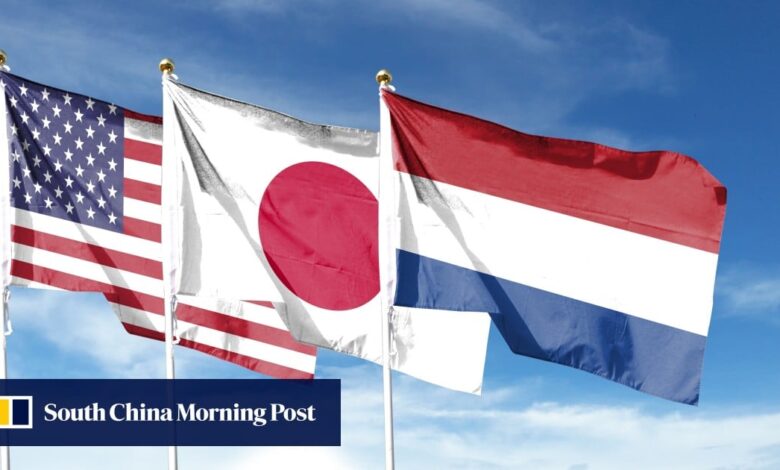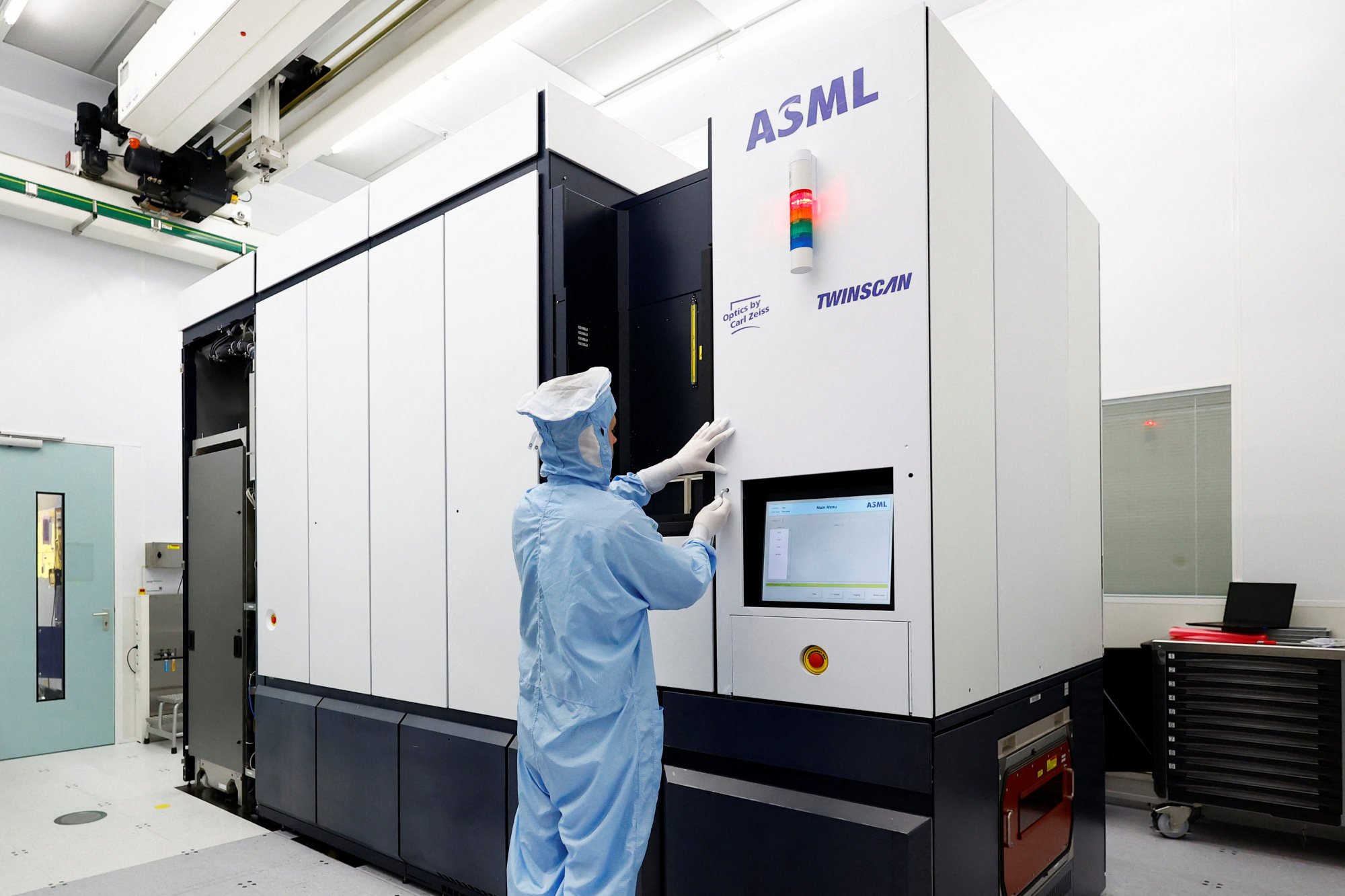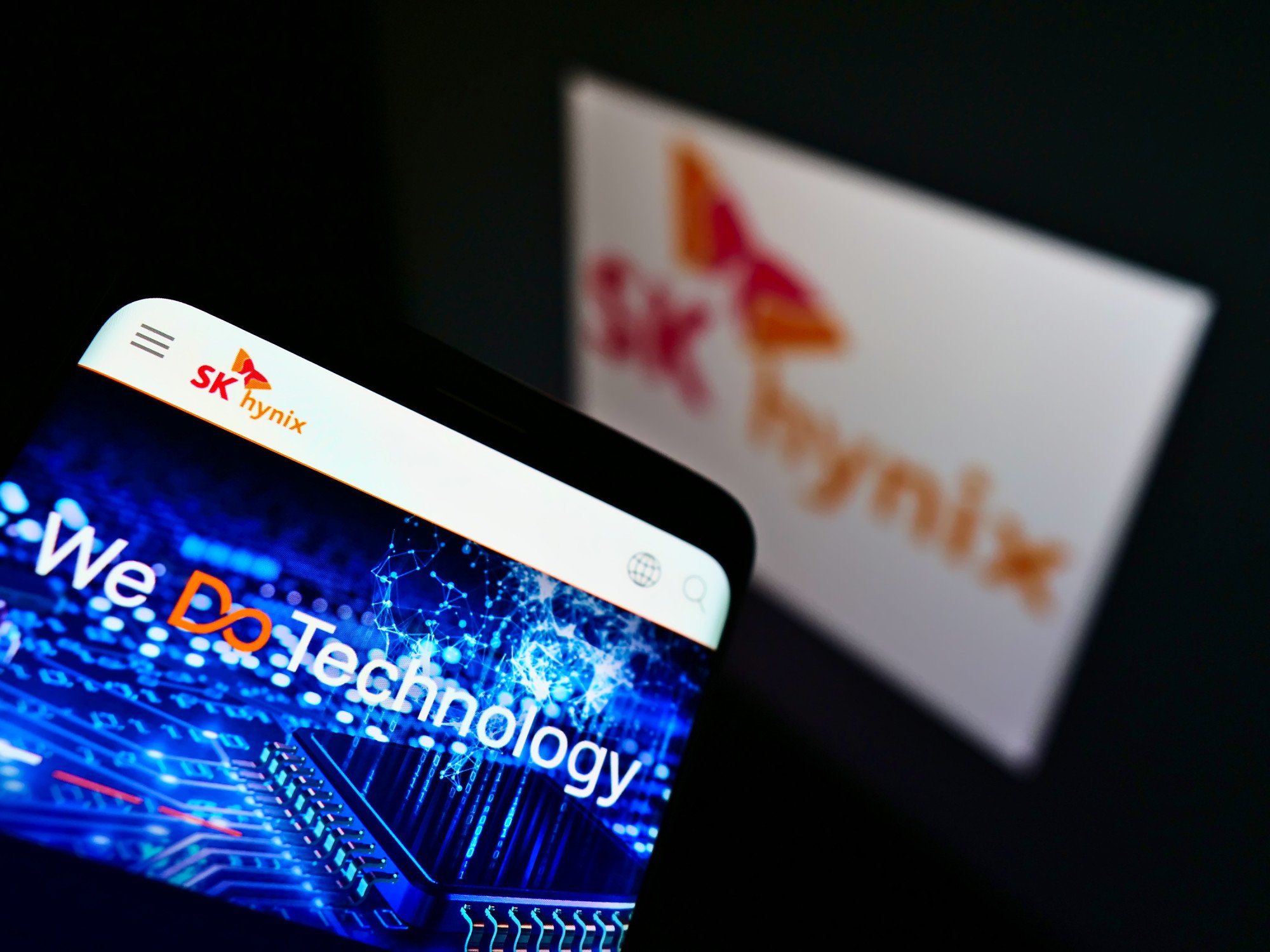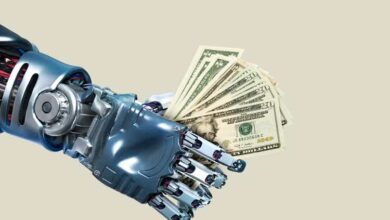Tech war: US seeks help of allies Japan and Netherlands to curb China’s AI chip progress

ASML and Tokyo Electron machines are used to produce dynamic random access memory dies, which are stacked together to make HBM chips.
The Biden administration has tried for years to limit China’s ability to buy and produce advanced semiconductors, arguing such steps are necessary for national security. Yet results have been mixed, with Huawei and others making significant advances.
The US is seeking support from allies, who have implemented their own less stringent controls, to create a more effective global blockade.
“The United States is the most critical player in the global semiconductor equipment industry, but it’s far from the only country that matters. Japan and the Netherlands are also key providers of semiconductor equipment,” said Gregory Allen, director of the Wadhwani Centre for AI and Advanced Technologies at Washington’s Centre for Strategic and International Studies. “The Netherlands and Japan have restrictions on exports but not on servicing, and that’s a critical limitation in the overall technology controls architecture.”

The Dutch and Japanese governments have been resisting the US pressure, people familiar with the matter said earlier. The two countries want more time to evaluate the impact of current export bans on high-end chip-making equipment and to see the outcome of the US presidential election in November.
It is uncertain how the new Dutch government led by Wilders will react to US demands for additional measures. Klever is co-founder of a far-right television channel Ongehoord Nederland, which stirred controversy for its pro-Russian reporting and climate-change scepticism.

A representative of the US Commerce Department’s Bureau of Industry and Security declined to comment. A spokesman for the Dutch foreign trade ministry declined to comment. Japan’s Ministry of Economy, Trade and Industry did not respond to requests for comment.
South Korean equipment makers including Hanmi Semiconductor Co and Hanwha Precision Machinery Co also play a critical role in the HBM supply chain. Earlier this year, Washington asked Seoul to restrict the flow of equipment and technologies for making high-end logic and memory chips to China, Bloomberg News has reported.
Officials in Washington have also grown worried about China’s own progress in chip-making equipment. Lawmakers on Tuesday introduced a bipartisan bill to ban companies that receive US funding for semiconductor factories from purchasing Chinese tools for those facilities.



